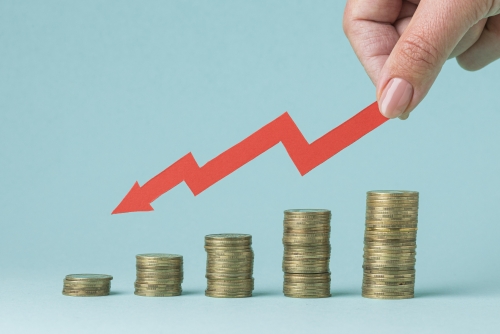Bahrain has been recognized for its economic stability, as reflected in its remarkably low inflation rate of just 1.4%. This achievement places the country at the 11th position globally, showcasing its resilience amidst the challenges of rising costs. In comparison within the Arab region, Bahrain ranks second only to Oman, which is projected to have an even lower inflation rate of 1.3%. The United Arab Emirates, Morocco, and Saudi Arabia are also closely following behind with projected rates of 2.1%, 2.158%, and 2.257%, respectively.
While Bahrain is successfully controlling inflation, several countries are grappling with high inflation rates globally. Zimbabwe currently holds the highest inflation rate at a staggering 560.981%, followed by Argentina at 249.793% and Sudan at 145.535%. On the opposite end of the spectrum, the Republic of Seychelles is experiencing a negative inflation rate of -239%, the lowest globally, with Costa Rica and Thailand following closely with -0.286% and 0.7%, respectively.
It is important to note that inflation data for Palestine, Syria, and Lebanon is currently unavailable, according to the Global Finance Magazine website. Regardless, Bahrain’s low inflation rate serves as a positive economic indicator, attributing to the country’s responsible fiscal policies and efforts to maintain a stable and prosperous environment for its citizens and businesses. This achievement showcases Bahrain as a model of economic resilience in a world where many countries are struggling with skyrocketing inflation rates.
Inflation is a key economic indicator that reflects the general increase in prices of goods and services over time. Countries with low inflation rates, like Bahrain, are generally deemed to have stable economies with controlled price levels, making them attractive for investors and businesses alike. Bahrain’s ability to keep its inflation rate remarkably low at just 1.4% speaks volumes about the government’s commitment to maintaining economic stability and growth in the country.
The low inflation rate in Bahrain also bodes well for its citizens, as it helps in maintaining the purchasing power of the local currency and controlling the cost of living. This, in turn, leads to increased consumer confidence and overall economic growth. By contrast, countries with high inflation rates face numerous challenges, including reduced purchasing power, unstable markets, and decreased foreign investment.
Overall, Bahrain’s impressive performance in controlling inflation demonstrates its commitment to fostering a stable economic environment for both its residents and businesses. With responsible fiscal policies and a focus on sustainable growth, Bahrain continues to showcase itself as a model of economic resilience amidst a backdrop of global economic uncertainties. As the country moves forward, maintaining such low inflation rates will be crucial in ensuring continued economic prosperity for all stakeholders involved.











